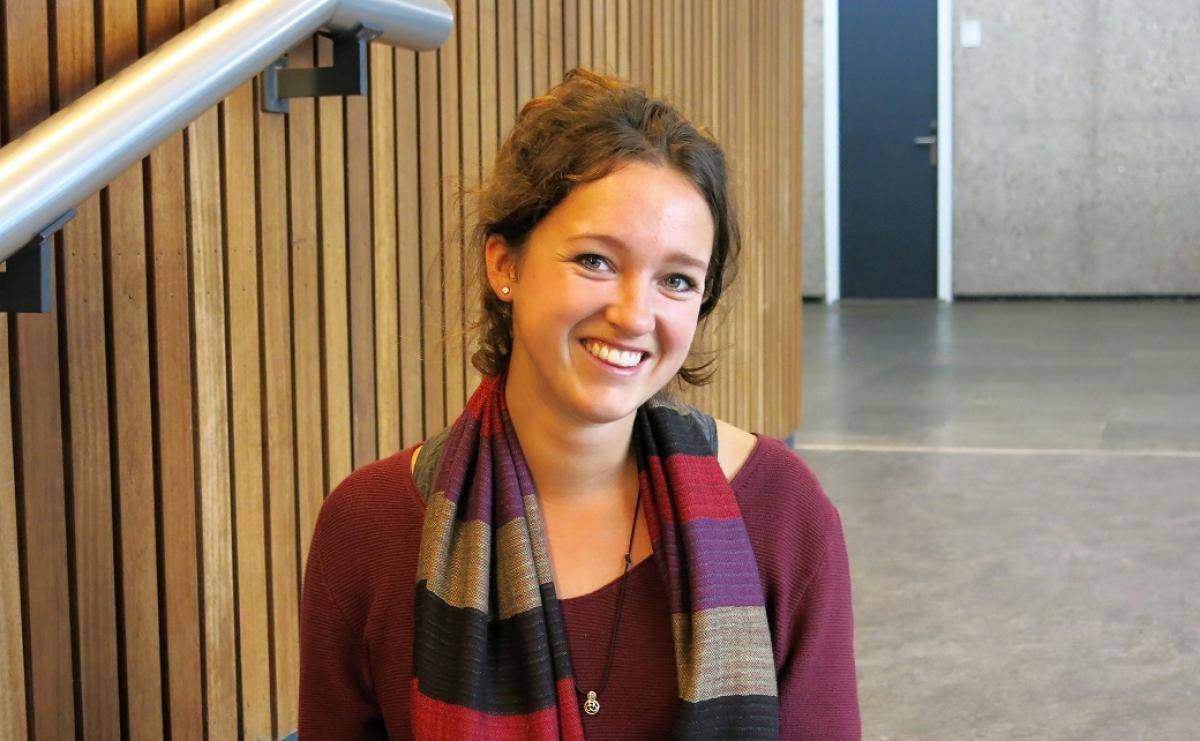Humans of TU Delft: Esmée Mulder
Text and photo by: Heather Montague
Who are the people who study and work at TU Delft? Esmée Mulder is researching how satellites can help one Maasai community in East Africa become more drought resilient.

It’s cool to see how different knowledge can be combined and how we can learn from each other.
“I study water management and my focus at the moment is on drought forecasting. Previously, I studied at University College Utrecht, which is a liberal arts and sciences university. I came to Delft to add more of a technical approach to that.
I like to integrate things, to apply technology to society. I work with satellites at the moment and I think they’re one of the more empowering tools because they provide data in areas that might not be prioritised by governments or other institutions. Combining satellite imagery with people on the ground and with policy making is really interesting.
I work mostly with qualitative data, which is pretty rare at TU Delft, I have noticed. A lot of people here like to quantify things, which is obviously very important, but I think there’s also a lot of value in the stories people tell and their experiences and local knowledge, so I try to integrate that with the technology.
I like to apply technology to society
I did field work in East Africa when I was at Utrecht and I still go back to help with that every year. I usually spend a couple of months traveling through Kenya and Tanzania. The field course focusses on livelihoods, and in the program we go from informal settlements in Nairobi to the pastoral areas where the Maasai herd their cattle to the coast and Zanzibar where tourism and fishing are really important.
This year I am going back for my own master’s research too. I’m looking at whether drought forecasting - early warning systems - could be useful for one of the Maasai communities living in one of those areas. They have their own strategies on how to deal with drought, but because of land grabbing, land privatisation and conservation, they have less and less land for grazing, so their vulnerability to drought is increasing. I’m looking at whether early warning systems based on satellites and hydrological models could be useful for these communities, together with their own livelihood strategies, to increase their resilience to climate change.
I love being with people from cultures that are very different to what I’m used to. I get inspired by that and it’s cool to see how different knowledge can be combined and how we can learn from each other. I hope to continue to do that in the future, to integrate social sciences, natural sciences and engineering.”
Do you want to be featured in Humans of TU Delft? Or do you know someone with a good story to tell? Send an e-mail at humansoftudelft@gmail.com